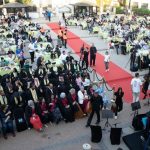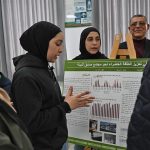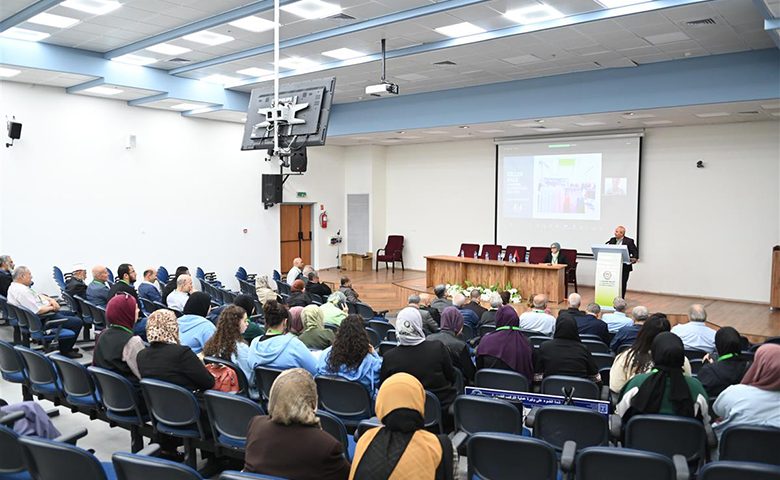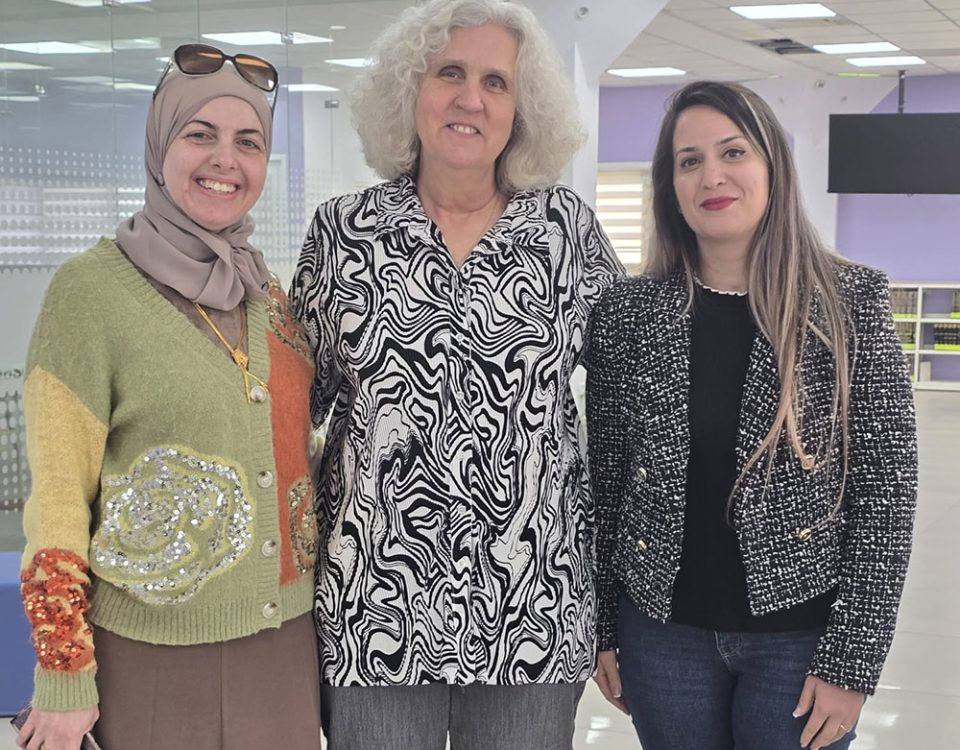
Al Qasemi Academic College celebrates the graduation of a group of MA students in a Special ceremony
January 29, 2024
The Climate Change Crisis and Education – Session Summary
January 29, 2024The second day of the conference (13.03.2023) at Al-Qasemi Academy began with a welcoming speech from the attorney Afif Abu Tomeh – Chairman of the Board of Directors at Al-Qasemi Institutions. In his welcoming speech, Afif Abu Tome raised attention to the important role that Al-Qasemi Academy had played in organizing the conference and inviting scholars and lecturers from across the world. This was followed by a speech from the President of Al-Qasemi Academy, Professor Anwar Rayan, who highlighted the importance of addressing the climate change crisis and its repercussions on the world and thanked the Ministry of Regional Cooperation for sponsoring the conference.
After that, Ms Cecilia Attard Perotta – the Ambassador of Malta – delivered a speech in which she praised the crucial efforts made by Al-Qasemi Academy to organize the conference and the international networking events that preceded it, including sending a delegation of academics from Al-Qasemi Academy to the University of Malta to strengthen partnerships between the two institutions as well as organizing networking events in Jordan and Palestine. The final welcoming speech was delivered by Mr Ahmed Jabareen – representative of the Ministry of Regional Cooperation – who welcomed the attendees and affirmed the ministry’s support for the positive action that Al-Qasemi Academy partakes in the field of regional cooperation.
The second day of the conferencewas split into two sessions, the Morning Session, entitled “Climate Change: Public Awareness and Policy,” was organized, chaired, and facilitated by Dr Mai Anabosi-Atamna and Professor Rasim Khamaisi. This first session included six different lectures aimed at shedding light on several topics directly related to climate change and its effects and repercussions on the world as well as the regional and international political-environmental cooperation initiatives focused on tackling this crisis.
The first lecture, titled “Urban Planning and Climate Change,” was given by Professor Rasim Khamaisi – researcher and scientist at the University of Haifa and member of the Higher Academic Council at Al-Qasemi Academy. Professor Khamaisi discussed the importance of sustainable development for managing and adapting to the climate change crisis, especially in terms of designing and planning cities that can effectively tackle the significant increase in human population growth, consumption rates, and mass urbanization.
This was followed by a lecture given by Dr Ibrahim Assi – Director of the Regional Center for Pavement Assessment at the Arab Center for Engineering Studies. In this lecture, titled “The Use of Recycled Asphalt in Road Construction: Effectiveness of Laboratory Performance, Environmental Effects, and Costs,” Dr Assi pointed to the more contemporary research on RAP recycled asphalt as a sustainable alternative solution for road construction materials. The lecture also included a comprehensive presentation of the scientific evidence behind the success of RAP and its long-term effects on natural resources, the environment, and the overall economy.
Then, Dr Mittal Peleg Mizrahi – researcher and entrepreneur at Tel-Aviv University – delivered the third lecture, titled “Killer Sale Offers: Between Fashion, Climate, and Society.” In this lecture, Dr Peleg Mizrahi shed light on the clothing and fast fashion industry and its negative effects on the environment. This lecture shows how the clothing and fast fashion industry is the second most polluting industry after petrol, and so it is one of the highest contributors to air and water pollution as well as labor exploitation (especially among children and women from ‘third world’ countries).
This was followed by the fourth lecture which was given by Professor Mauz Fine – the internationally acclaimed researcher from the Hebrew University in Jerusalem and head of the Inter-University Center for Marine Studies. In his lecture, titled “Protecting Resilient Coral Reefs North of the Red Sea: The Urgent Need for Regional and National Environmental Conservation Efforts,” Professor Fine touched on the new scientific research related to coral reefs in the Red Sea, from the Gulf of Aqaba to Bab al-Mandab. He shed light on how the climate change crisis has significantly affected coral reefs, which are now globally considered extremely rare, but he also drew attention to the importance of regional cooperation and the new research and cooperative initiatives that focus on biodiversity, agriculture and fishing, and economic tourism as a way to protect coral reefs in the Red Sea.
The fifth lecture, titled “Embracing Sustainability with Support from the Middle East,” included a short film on the Sun Triangle Initiative by Mr Noam Weiner. The film introduced the Sun Triangle Initiative and their cooperative work across Palestine/Israel, Jordan, and Egypt to produce solar energy as a global alternative to polluting energy resources worldwide. The film can be viewed in both Arabic and English using the following links:
The Sun Triangle Movie [Arabic]
https://suntriangle.com/watch-movie-%5B-arabic-%5D-1
The Sun Triangle Movie [English]
https://suntriangle.com/watch-movie-%5B-english-%5D-1
This morning session then ended with the sixth and final lecture presented by Mr Sharif Masarweh – educator and community initiative pioneer – who discussed recent sustainable community initiatives in Arab towns. In this lecture, titled “Society, Sustainability, and Giving: Community Initiatives and Their Relationship to Climate Change,” Mr Masarweh looked closely at sustainable community initiatives in the city of Baqa al-Gharbia and the villages around it, including Eco-Peace, Green Tapestry (Wadi ‘Ara), Friends of Earth – Middle East, and Mandel. He showed how such initiatives create and manage projects that work towards environmental cooperation and innovation and finding practical applications to climate change solutions, including the Heritage Museum, the Street Murals project, the Giving and Volunteering project, and the Documentation of Historical Books project. Such projects are examples of how sustainable community initiatives tackle the climate change crisis by focusing on community heritage and communal religious culture.
Note: All lectures were broadcast live on Al-Qasemi Academy Facebook page (with instant translation into Arabic for the lectures delivered in English). You can find the lecture recordings uploaded on the conference’s webpage.


